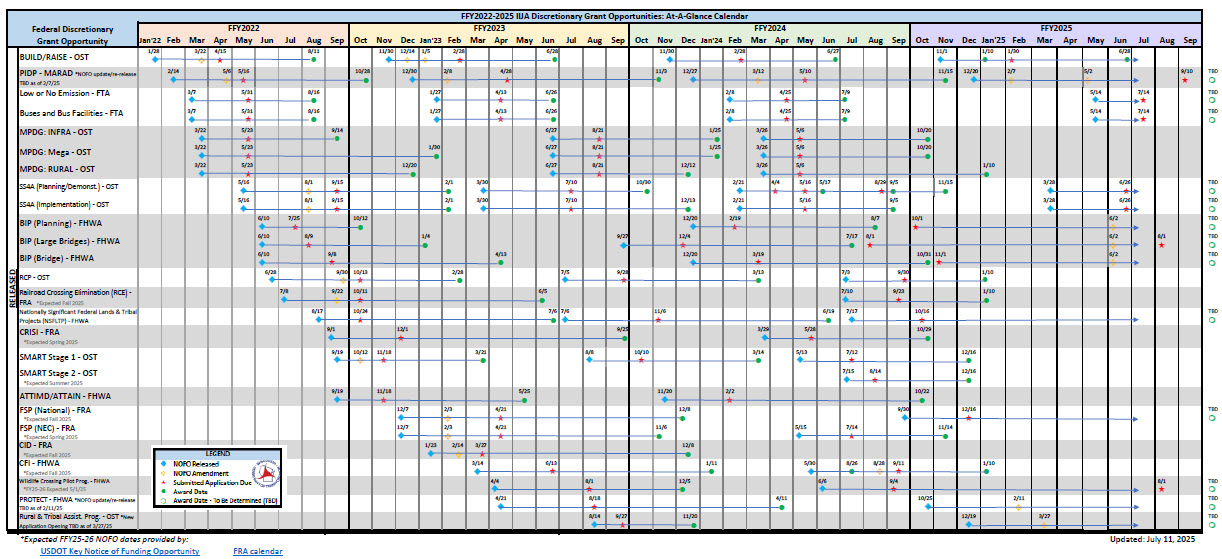WisDOT offers these key items to consider when applying for a Federal Discretionary Grant.
Start early. Review and use
USDOT’s FY2023 Discretionary Grant Preparation Checklist for Prospective Applicants. Use this to determine when to apply and for resources to prepare a successful application.
- If you are applying for an Infrastructure Investment and Jobs Act (IIJA) discretionary grant that is not through USDOT, review all requirements for that agency’s unique grant process. This will ensure that your specific project can meet all requirements and be able to use the federal grant funding (if awarded and made available).
Plan ahead. A good rule of thumb is to apply for a grant when a project is 1-2 years prior to project construction. If you are planning to apply for a grant to be used on a transportation infrastructure project, coordinate with a WisDOT region representative.
Use WisDOT’s At-A-Glance calendar (below) to see the discretionary grant schedule, including last year’s and current releases, as a planning resource for when to apply.
Anticipate. Grant agreement can take 6-12 months to be executed after grant award announcements have been made.
- Grant award funds aren’t available to spend until the grant agreement has been executed.
- Grant funding can’t be used to cover costs prior to the date of agreement execution.
- Federal funds have additional rules and requirements (watch for specifics on reporting, tracking and monitoring financial systems and grant activities) that differ from local and state requirements. See
Federal 2 CFR 200 Uniform Administrative Requirements, Cost Principles, and Audit Requirements that govern all USDOT awards.
Be prepared for additional requirements. USDOT grants are generally made on a
reimbursement basis. Typically, the grantee incurs the costs and seeks reimbursement from USDOT.
- USDOT funds in general can’t be used as the non-Federal match for other programs.
- Ensure your project is included in the STIP/TIP.
Discretionary Grant At-A-Glance Calendar
(view document)
